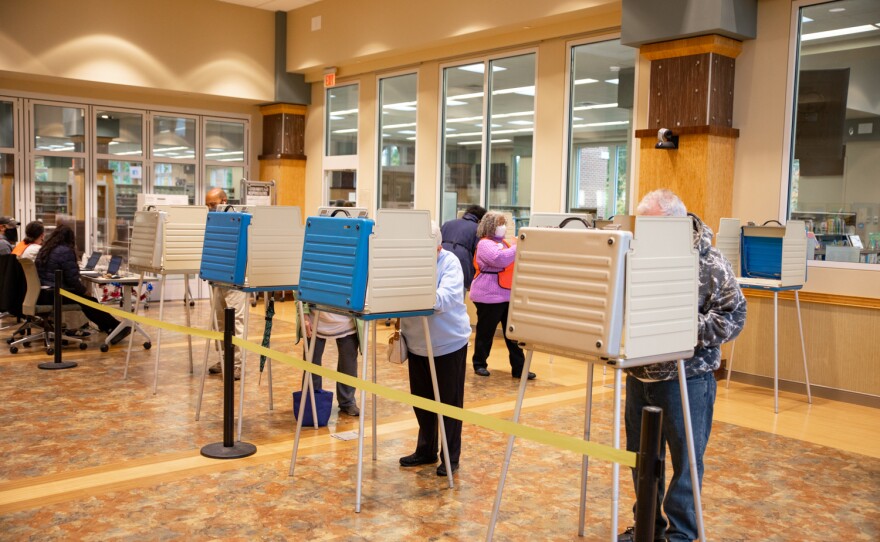Virginia Republicans won control of the executive branch and flipped enough House of Delegates seats to take control of half of the state legislature.
Candidates Glenn Youngkin, Winsome Sears and Jason Miyares won their respective races for governor, lieutenant governor and attorney general. Republican delegate candidates won a four-seat majority in the house.
Democrats retain a slim majority in the state Senate, which wasn’t on the ballot this year, but Rich Meagher, a professor of political science at Randolph-Macon University, says they’ll have to adjust to divided control.
“The Democrats have had just a torrent of new policies and programs,” Meagher said about the past two years of Democratic control of the statehouse.
Meagher says he expects new legislation will “slow down quite a bit.”
“There’s probably not gonna be a lot of stuff that comes out of the General Assembly this year,” Meagher said. He pointed to the state Senate as a firewall for Democrats seeking to oppose Governor-elect Youngkin’s priorities.
Youngkin will be Virginia’s first GOP governor since former Gov. Bob McDonnell left office in 2014. He’ll also be the first Republican in 7 years to appoint a cabinet and many other state government positions.
Outside of legislation, Meagher says that’s another way Republicans can work to undo or hamper Democratic reforms.
“Careful or strategic or even ideological bureaucrats, particularly at the upper levels of government, can sometimes influence how laws are actually implemented,” Meagher said.
Cabinet members to be appointed include the secretary of education, who would be able to work on a key component of Youngkin’s campaign. Whoever he appoints will have influence over how the law is applied on specific policies like pandemic precautions and transgender student protections.
And local boards of elections across the state will swap from Democratic-majority to Republican-majority.



